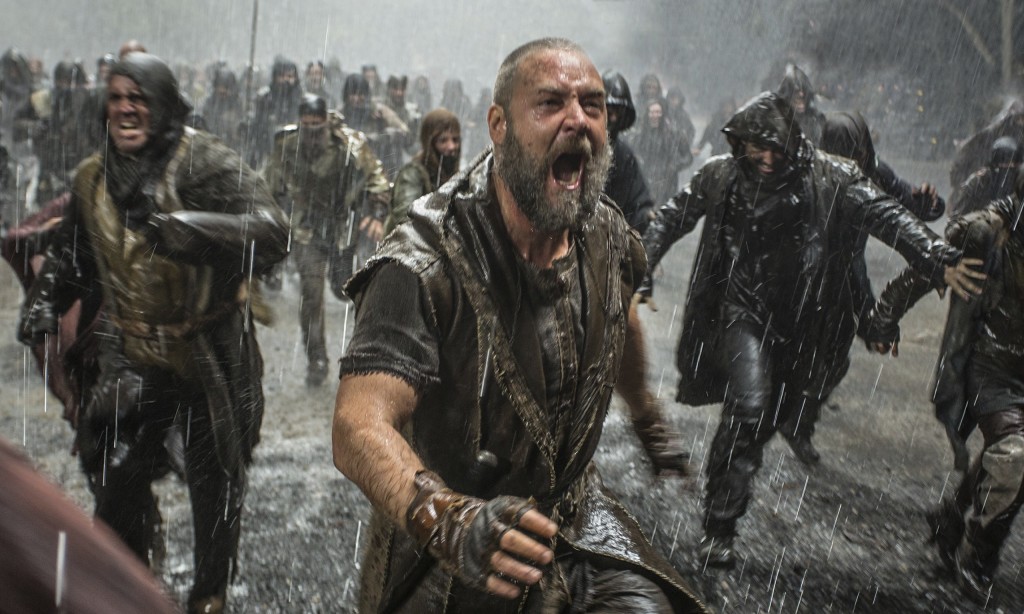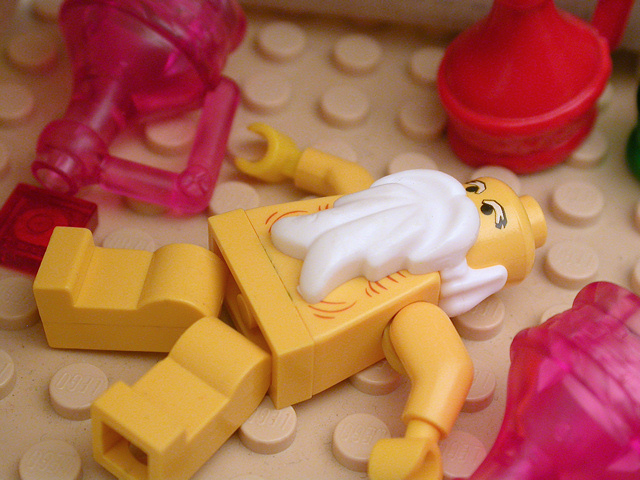Noah's Ark - Is It The Worst Children's Bible Story EVER
 The American movie scene is all the buzz right now over 'Noah'. The film was released weeks ago and still the internet is all a buzz over how great (or bad) the movie is and whether or not the movie is true to the Biblical story. Just think about it everyone in the world is killed, expect of course for Noah and his family. This is a favorite Sunday School story where most people stop reading after God places a rainbow in the sky. Most people do not know about Noah becoming a vineyard operator, or about him becoming drunk and passing out.
The American movie scene is all the buzz right now over 'Noah'. The film was released weeks ago and still the internet is all a buzz over how great (or bad) the movie is and whether or not the movie is true to the Biblical story. Just think about it everyone in the world is killed, expect of course for Noah and his family. This is a favorite Sunday School story where most people stop reading after God places a rainbow in the sky. Most people do not know about Noah becoming a vineyard operator, or about him becoming drunk and passing out.
To explore the Noah story further, here is a D'Rash (an exegesis based upon a Biblical text and Midrash) I wrote based on the beginning of the flood story, Genesis 6.9-13. I have included the Midrash text, Genesis Rabbah 30,9.
Bible Text - Genesis 6.9-13
These are the descendants of Noah. Noah was a righteous man, blameless in his generation; Noah walked with God. And Noah had three sons, Shem, Ham, and Japheth.
Now the earth was corrupt in God’s sight, and the earth was filled with violence. And God saw that the earth was corrupt; for all flesh had corrupted its ways upon the earth. And God said to Noah, “I have determined to make an end of all flesh, for the earth is filled with violence because of them; now I am going to destroy them along with the earth.
Midrash Text - Genesis Rabbah 30,9
In his age. Rabbi Yehudah and Rabbi Nehemiah: Rabbi Yehudah said, “In his age he was a righteous man, but if he lived in the age of Moses or in the age of Samuel, he would not have been [considered] righteous. In a market filled with the blind, they call the one-eyed person ‘Bright eyes.’ A parable: A person had a wine cellar. He opened one barrel and found it had turned to vinegar; a second - also [vinegar]; a third - and found it sour. He said to them ‘Is there anything better here?’ They said to him, ‘No.’ So too, [Noah] in his age was a righteous man. But if he were in the age of Moses, or of Samuell, he would not have been [considered] righteous.”
Rabbi Nehemiah said, “If in his own age he was righteous, how much more so would he have been [righteous] in the age of Moses or Samuel. A parable: A vial of balsam with a tightly sealed cap is placed among graves; yet, its fragrance still disseminates. If it were away from the graves, how much more so [would its fragrance disseminate]. A parable: A virgin is surrounded in a market by whores; yet she does not get a bad reputation. If she were in a market of good women, how much more so [would her reputation be positive]. So too: In his own age he [Noah] was a righteous man; if he had been in the age of Moses or of Samuel, how much more so [would he have been considered righteous].”
D’Rash
There has been an influx of biblically based movies in 2014: “God’s Not Dead”, “Noah”, “Son of God”, and “Heaven is For Real”. These movies are attracting the faithful to crowded theaters that smell of overpriced tickets and stale popcorn. These movies tug at our heartstrings with stories that many of us can remember hearing our parents tell us about or we remember making cute crafts after hearing the story in Sunday School. One of these movies, “Noah”, tells the story of my favorite Sunday School hero. A man who saved his family and all of the animals (except the poor unicorns) from God’s wrathful vengeance against a sinful world.
In an age when feel good stories of what we might consider to be righteous people are scattered throughout the evening news, we can become desensitized to the good works being done around us. Our 24/7 news cycle gives us story after story of people who are doing good in the midst of difficult situations [terrorist attacks, natural disasters, criminal activities] and yet for many of those people the accolades they receive do not mirror the rest of their lives. They are sinful people, just like the rest of us, and if [or when] they fall from their graceful pedestals the public has placed them on, many people are shocked at the change of heart the righteous person had. The good deeds they did or were doing are wiped away. But this has not always been the case throughout our tradition of storytelling.
If we are active in faith communities where good works are being done [feeding the poor, providing housing for the homeless, caring for the widows and orphans] the righteous among our community begin to blend in with one another. It can be hard for us to see the standout members of the community, and if the standout members of the community fall from their own perceived graceful pedestals, then the community does not notice the fall either. Pious acts by righteous people often go unnoticed by those around them, and unless the person is of notability their downfalls can be hard to miss too.
The story of Noah is a perfect example of the righteous falling, and because he was surrounded by other righteous people it often goes unnoticed. Most of us can recite from memory how God spoke to Noah, gave him instructions to build an ark, and saved Noah’s family, and after forty days of rain sent a rainbow as a sign of a new covenant. It is a picture perfect story until you read a little further. Genesis chapter 9:
Noah, a man of the soil, was the first to plant a vineyard. He drank some of the wine and became drunk, and he lay uncovered in his tent.

OOPS! I guess my Sunday School teacher forgot that part of the story. If you think this is the only Old Testament hero to not have a clean record, Moses killed a man and David stole another man’s wife. If Old Testament examples are not enough, look to the Gospels and letters of Paul. Jesus’ own disciples [along with His family tree] were comprised of people who were less than stellar members of society and Paul was the gruesomest persecutor of Christians! God calls all of us, when our righteousness is not clearly visible to those who surround us and when our own shortcomings make us think that we are unworthy of the task placed before us.
Katz and Schwartz use the example of Oskar Schindler, a man who helped to save over one thousand Jews from certain death at the hands of the Nazi’s. Katz and Schwartz note that we do not know Schindler’s motivations but only that he lived during a time of great evil, just like Noah. And just like Noah, Schindler responded with action that saved many.
It may not be clear that your righteousness is enough or it may be plain as day that your shortcomings are more than enough to prevent you from being an agent of God. The story from Genesis 6 and Genesis Rabbah 30,9 makes it clear though that God intends to use regardless of how others, or even ourselves, view our righteousness.